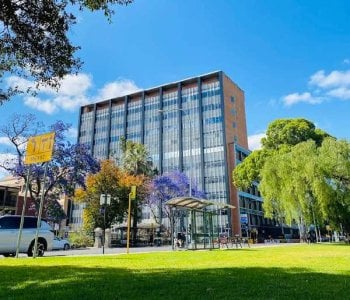Thousands of patient records hit by alarming ransomware attack. Is your data safe?
By
Danielle F.
- Replies 0
In an age where personal information is increasingly digitised, data security has been a growing concern across the country.
While technology has brought Australians many conveniences, it also comes with new risks.
Recently, SA Health reported a significant breach involving the personal details of sleep study patients.
The incident affected 2,254 patients who had participated in sleep studies at the Women's and Children's Hospital (WCH) in Adelaide.
Their names, addresses, and other sensitive information were compromised in a ransomware attack.
The attack affected patient information collected from the hospital's inpatient sleep service dating back to 2018.
However, the breach occurred outside the hospital's systems but within the software provided by a third-party company.
Compumedics has been managing the study's patient data on a global scale.
'As soon as Compumedics revealed the initial national ransomware attack, we took immediate action to suspend access to the Compumedics software and related devices from our network,' SA Health's Chief Executive Officer Dr Robyn Lawrence said in a statement.
'Now, as soon as we have been made aware that South Australian sleep study patients are likely to be affected, we have taken immediate action to verify that information and notify patients and the public.'
According to SA Health, WCH was the only public hospital affected in the state.
What does this mean for the patients affected?
Ransomware is malicious software that could lock access to a computer system or data.
These breaches often threaten data destruction unless the victims pay a ransom.
Learn more about the data breach from this report by 7News Australia:
Source: 7News Australia/YouTube
The full extent of the data breach has not been disclosed.
However, the potential consequences could range from privacy concerns to identity theft.
Personal health information is particularly sensitive, and exposure of these records could have long-lasting implications.
Even if one's direct healthcare provider has robust security measures, third-party vendors with access to patient data can still be vulnerable.
In response to the breach, both Compumedics and SA Health have taken steps to support impacted patients.
SA Health opened a helpline for anyone affected by the breach.
Individuals may call SA Health at (08) 7111 3699.
They may also call Compumedics through their helpline at (03) 8420 7300.
This is a stark reminder for Australians, especially seniors who frequently visit hospitals, to stay vigilant.
Monitor personal information and financial accounts for any unusual activities.
If you suspect that your data has been misused, contact the relevant institutions immediately.

Have you or someone you know been affected by the recent data breach? How can systems protect Australian seniors further from these digital threats? Share your experiences and opinions about this issue in the comments section below.
While technology has brought Australians many conveniences, it also comes with new risks.
Recently, SA Health reported a significant breach involving the personal details of sleep study patients.
The incident affected 2,254 patients who had participated in sleep studies at the Women's and Children's Hospital (WCH) in Adelaide.
Their names, addresses, and other sensitive information were compromised in a ransomware attack.
The attack affected patient information collected from the hospital's inpatient sleep service dating back to 2018.
However, the breach occurred outside the hospital's systems but within the software provided by a third-party company.
Compumedics has been managing the study's patient data on a global scale.
'As soon as Compumedics revealed the initial national ransomware attack, we took immediate action to suspend access to the Compumedics software and related devices from our network,' SA Health's Chief Executive Officer Dr Robyn Lawrence said in a statement.
'Now, as soon as we have been made aware that South Australian sleep study patients are likely to be affected, we have taken immediate action to verify that information and notify patients and the public.'
According to SA Health, WCH was the only public hospital affected in the state.
What does this mean for the patients affected?
Ransomware is malicious software that could lock access to a computer system or data.
These breaches often threaten data destruction unless the victims pay a ransom.
Learn more about the data breach from this report by 7News Australia:
Source: 7News Australia/YouTube
The full extent of the data breach has not been disclosed.
However, the potential consequences could range from privacy concerns to identity theft.
Personal health information is particularly sensitive, and exposure of these records could have long-lasting implications.
Even if one's direct healthcare provider has robust security measures, third-party vendors with access to patient data can still be vulnerable.
In response to the breach, both Compumedics and SA Health have taken steps to support impacted patients.
SA Health opened a helpline for anyone affected by the breach.
Individuals may call SA Health at (08) 7111 3699.
They may also call Compumedics through their helpline at (03) 8420 7300.
This is a stark reminder for Australians, especially seniors who frequently visit hospitals, to stay vigilant.
Monitor personal information and financial accounts for any unusual activities.
If you suspect that your data has been misused, contact the relevant institutions immediately.
Key Takeaways
- Personal details of 2,254 patients at the Women's and Children's Hospital in Adelaide were accessed in a ransomware attack.
- The attack targeted Compumedics, a third-party vendor managing international patient data for sleep studies.
- SA Health announced the security breach and confirmed the information accessed, including names and addresses.
- Compumedics and SA Health have established helplines to support affected patients.








